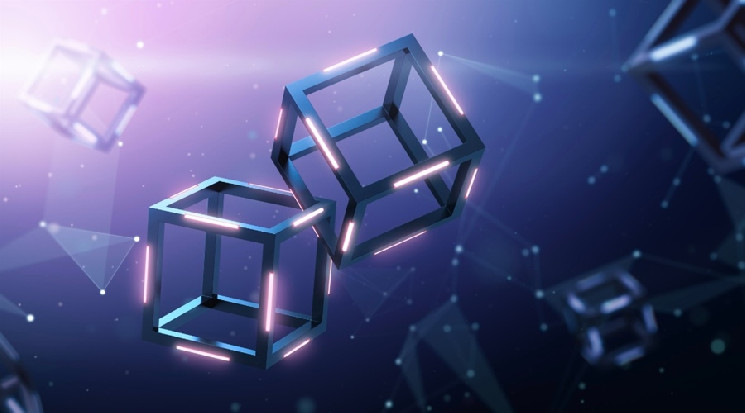Blockchain can be complicated even for those who know what they’re doing. Account abstraction is here to help by making transactions easier.
Prom is one platform that is working to make Web3 easier and more user-friendly by building account abstraction into their products to make blockchain tech more accessible and efficient for everyone.
What is Account Abstraction?
Account abstraction is a new way to simplify managing user accounts on the blockchain. There are two types of accounts: Externally Owned Accounts (EOAs) controlled by private keys and Contract Accounts (CAs) which are smart contracts. EOAs are used by individuals for transactions and managing digital assets, CAs are used for automated agreements coded into them.
Managing private keys for EOAs is hard and risky and the traditional model is inflexible and complicated. Account abstraction helps by allowing smart contracts to manage accounts, combining private key management and transaction logic.
This means accounts can have features like multi-signature authorization, automated transactions and key recovery. Account abstraction makes blockchain accounts more flexible, secure and user friendly. Less complexity and risk, more people using blockchain.
How Account Abstraction works
Account abstraction changes how user accounts work on the blockchain by using smart contracts instead of the blockchain’s rules. This makes account management much more flexible and customisable.
Traditionally blockchain accounts are tied to the blockchain’s rules which makes them hard to change and manage. Account abstraction lets smart contracts manage accounts and have personalised security and transaction rules. For example a smart contract could require multiple signatures for big transactions, automate recurring payments or provide recovery options if a private key is lost.
An example of this is Ethereum’s EIP-4337 which proposes to use smart contracts to manage user operations. These contracts can manage transaction fees, group multiple operations into one transaction and add extra security like social recovery.
In simpler terms when you start a transaction a smart contract checks it first according to the rules of your account. Once everything is good the smart contract sends the transaction to the blockchain. This extra step allows for more customisation and security without touching the blockchain’s core functionality.
Prom’s Approach to Account Abstraction
Prom uses a clever setup called Modular ZkEVM Layer 2 to make different blockchain networks work together. This means it can connect systems that don’t work with Ethereum’s tech, share transaction data across multiple chains to make them work better together and make the whole system more decentralized.
The goal is to make blockchain simpler for users. With account abstraction Prom hides the complex parts of transactions, so it’s easier for people to use. This is especially good for Ethereum users as Prom just slots in with existing Ethereum setup.
To keep transactions fast, safe and private Prom uses advanced tech like Zero-Knowledge (ZK) proofs, including zkSNARKs and recursive STARKs. These make transactions secure and efficient.
Prom also uses multichain and Zero Knowledge tech to make blockchain work across different networks. This makes the blockchain world more open and connected so different systems can work together seamlessly.
A real life example of Prom’s approach is their NFT platform Prom.io. Users can create, sell, rent and share NFTs. Thanks to Prom’s Layer 2 solutions these transactions are scalable, secure and private and provide a better user experience. Prom wants to make blockchain simpler and more user friendly with Modular ZkEVM Layer 2, advanced security tech and multichain.
Pros and Cons of Account Abstraction
Account abstraction makes blockchain way easier to use by removing the need to manage complex private keys and having simple account recovery options. That means blockchain for everyone.
It also makes it more secure. Smart contracts handle account operations so features like multi-signature authorization and automated transaction checks are introduced, reducing mistakes and security breaches.
For developers account abstraction gives more freedom. They can create custom rules for account management, making dApps more advanced and user friendly. That means automated compliance checks, customizable transaction fees and stronger user verification.
Scalability is a bonus. By moving complex transaction logic to smart contracts the main blockchain network has less to process so it’s more efficient and can handle more transactions.
But there are some cons. It can be tricky for developers, requires deep understanding of blockchain and smart contracts which can slow down progress. Smart contracts also come with risks – any bugs can be exploited and lead to financial losses or security issues. Thorough testing and auditing is needed to prevent this.
Moving to account abstraction can also be hard for existing users who are used to traditional systems. They might find it confusing and existing applications will need to be updated to work with the new setup. Good education and support is key to a smooth transition.
How Account Abstraction Benefits the Blockchain Space
Account abstraction can solve some of the biggest problems of the blockchain. By using smart contracts for account management instead of the blockchain’s core rules account abstraction makes blockchain interactions simpler and more flexible.
One of the biggest benefits of account abstraction is it makes blockchain tech more accessible to everyday users. Managing private keys and handling transactions can be complex and scary. account abstraction simplifies these processes and makes them more intuitive and secure. Features like automated key recovery and multi-signature authorization reduce the risks and makes blockchain more suitable for regular use cases like financial transactions and identity verification.
For developers account abstraction opens up new possibilities to create more advanced and user friendly decentralized apps (dApps). With flexible account management developers can build dApps with more security, customisable transaction flow and easy to use interfaces. This leads to more innovation and more applications that can cater to different needs.
Account abstraction also makes developers to collaborate and experiment with new features like subscription models, automated compliance checks and dynamic fee structures. These innovations makes dApps more efficient and attractive and pushes the limits of what blockchain can do.
Also account abstraction makes it easier for businesses and institutions to adopt blockchain solutions. This can lead to big improvements in finance, healthcare and supply chain management where blockchain’s transparency, security and efficiency can be super useful.
Account abstraction lets developers make better apps and businesses integrate blockchain into their workflow. So account abstraction is key to the future of the blockchain.
Conclusion
Account abstraction is a big deal in the blockchain world, making accounts easier and safer. That’s important for blockchain. To stay up to date especially with Prom, join their community.
Get involved, try out beta features, follow their updates. That way you’ll be informed and help spread the word.
Read the full article here









